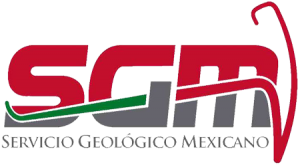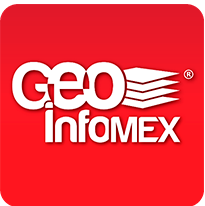Peak Annual Production over 160,000 oz of Gold
Average Annual Production of 137,000 oz for 11 Years
all dollar figures in US dollars, unless otherwise indicated
Equinox Gold Corp. (TSX: EQX, NYSE American: EQX) (“Equinox Gold” or the “Company”) is pleased to announce the results of a Pre-Feasibility Study (“PFS”) for an expansion at the Company’s 100%-owned Aurizona Gold Mine (“Aurizona”) located in Brazil. By mining the underground and satellite open-pit deposits concurrently with the existing Piaba open-pit, the expansion would extend the Aurizona mine life to 11 years with average annual production of 137,000 ounces (“oz”) of gold per year and total life-of-mine (“LOM”) production of 1.5 million oz of gold. Peak production in years 2026 to 2029 averages more than 160,000 oz of gold per year.
Updated Mineral Reserve and Resource estimates for Aurizona, incorporating the new underground and open-pit deposits and offsetting 18 months of mining depletion, show a 73% increase over the December 31, 2019 estimate with 1.7 million oz of Proven & Probable Mineral Reserves grading 1.60 grams per tonne (“g/t”) gold plus 868,000 oz of Measured & Indicated Mineral Resources (exclusive of Reserves) grading 1.49 g/t gold.
AURIZONA EXPANSION HIGHLIGHTS
- After-tax NPV5% of $314 million at $1,500/oz gold and $600 million at $1,800/oz gold
- $464 million after-tax LOM cumulative net cash flow at $1,500/oz gold and $830 million at $1,800/oz gold
- $803/oz average LOM cash costs
- $944/oz average AISC from 2024 onward and $1,058/oz average AISC LOM
- 1.5 million oz LOM gold production at an average recovery of 90.5%
- More than 160,000 oz peak average annual gold production from 2026 to 2029
- 137,000 oz average annual gold production (LOM)
- 1.7 million oz Proven & Probable Mineral Reserves grading 1.60 g/t gold
- $154 million underground mine initial capital costs, including $20 million contingency
- 11-year mine life with additional expansion potential from further exploration success
Christian Milau, CEO of Equinox Gold, stated: “Incorporating the Aurizona underground and satellite deposits into our mine plan will nearly double the Aurizona mine life, increase annual production and generate almost $1 billion of net cash flow at current gold prices. I am incredibly proud of what our team has accomplished at Aurizona. The expansion will create additional economic and social opportunities for our community partners and substantial value for our shareholders, with significant potential for further growth as we continue to explore what could eventually be a multi-decade mine.”
Scott Heffernan, EVP Exploration of Equinox Gold, stated: “Exploration continues to unlock the potential at Aurizona. We have successfully replaced reserves from nearly three years of mining and provided an additional 70% growth of both mineral reserves and mineral resources. We expect to demonstrate additional growth at Aurizona with ongoing exploration focused on mine life extension through infill drilling and conversion of resources to reserves, plus significant near-mine, underground and regional exploration to further develop this mining district as a cornerstone asset for Equinox Gold.”
OVERVIEW
Equinox Gold achieved commercial production at Aurizona in July 2019 after constructing a new mill and upgrading existing infrastructure. With an initial capital spend of only $160 million, Aurizona has produced more than 260,000 oz of gold and generated more than $190 million in free cash flow since commencing production.
The Piaba gold deposit contains gold mineralization in a vein system that extends at least four kilometres (“km”) along strike with smaller satellite deposits to the east and west of the main Piaba deposit. Recent drilling has shown that gold mineralization also extends below the ultimate open pit to depths greater than 1,000 metres (“m”) from surface. In 2020, a total of 65 diamond drillholes totaling nearly 26,000 m were drilled in the underground deposit to support the PFS and underground resource estimate. Year to date, 30 drillholes totaling nearly 11,000 m have been drilled in the Piaba underground, Tatajuba and satellite deposits, the results of which will be incorporated into the next reserve and resource update.
Aurizona Overall Site Plan
The current operation consists of the Piaba open-pit mine and a conventional crushing and grinding circuit with an 8,000 tonnes-per-day (“t/d”) carbon-in-leach (“CIL”) plant. The expansion will incorporate ore from the existing Piaba open-pit deposit along with the Piaba underground deposit and the Tatajuba, Boa Esperança, and Genipapo open-pit deposits. While the expanded mine will continue to use the existing mill and surface infrastructure, the existing powerline will need to be upgraded and the mine will require additional tailings and waste rock storage. Mining and processing underground ore concurrently with open-pit ore will increase the average mill feed grade, increase annual gold production and extend the mine life to 11 years.
MINING
The PFS considers the addition of an underground mine beneath the existing Piaba pit as well as the inclusion of two satellite open-pit areas: Tatajuba and Genipapo.
Underground Mining
The underground mine will be developed along a total strike length of 2.3 km beneath the Piaba pit. Access to the mine will be via a ramp collared in hard rock within the pit. The currently defined seven separate mining areas will be accessed by a 2-km main haulage decline with separate internal ramps. The first 800 m of the main haulage will be developed as a single heading to the location of the primary ventilation raise, which also provides emergency egress. From that point onwards the ramp will be developed as a double ramp arrangement, with the second ramp used for ventilation purposes during production. All underground mine development is in stable rock units located on the hanging wall side of the mineralized body.
The proposed underground mining method is long-hole stoping due to good ground conditions and the steep dip of the deposit. The PFS contemplates owner mining of stopes and underground development. Most of the stopes will include permanent rib pillars and be backfilled with rockfill from underground development or open-pit waste. The addition of cement to rockfill is confined to higher-grade areas where mining recovery can be maximized by eliminating rib pillars and above sill pillars.
Ore release will occur early in underground development, and Equinox Gold is reviewing additional opportunities to access higher-grade zones earlier in the underground mining schedule to enhance economics. First ore is released after approximately two years with steady state production exceeding 3,300 t/d achieved by year four. This production level is maintained until the middle of year seven and then reduces until underground mining is complete at the end of year 10. The Crown Pillar between the Piaba open-pit and underground will be recovered when underground mining is complete. In the PFS mine plan, the underground deposit provides 6.5 million tonnes (“Mt”) of ore grading 2.77 g/t gold of fresh rock.
Aurizona Underground Development Plan (Isometric View Looking South)
Open-pit Mining
Open-pit mining is currently undertaken by a contractor using conventional drill and blast, load and haul methods.
Piaba and Piaba East are currently in production providing feed to the Aurizona mill. Piaba East is a single-phase pit that is expected to be depleted by the end of 2024. Piaba will continue until 2032, mining the remaining four phases in the design and also the crown pillar in the floor when underground mining is complete. In the PFS mine plan, Piaba provides 18.9 Mt grading 1.3 g/t gold with 83% of the feed material being fresh rock. Piaba East provides 1.2 Mt grading 1.46 g/t gold of primarily saprolite mill feed.
The Boa Esperança pit is scheduled to be mined and completed in 2021, providing a total of 0.9 Mt grading 0.81 g/t gold of saprolite mill feed and creating a freshwater storage facility for plant operations.
The Tatajuba deposit, located 4 km to the west of the Piaba pit, is a two-phase pit design scheduled to commence production in the fourth quarter of 2023. Mining would continue in 2024 then pause until 2027, when the second phase would be complete. In the PFS mine plan, Tatajuba provides 2.0 Mt grading 1.39 g/t gold with 70% of the material being saprolite and transition material and the remainder fresh rock.
The Genipapo area is located 3 km by road to the east of the Aurizona plant. This area is separated into two small areas called Genipapo North and Genipapo South that will share a common waste storage facility. Mining of Genipapo South would start in 2024 and then move to Genipapo North, which is completed in 2028. Combined, the two Genipapo pits are expected to provide 0.67 Mt grading 0.82 g/t gold of saprolite and laterite feed.
The Crown Pillar removal is expected to provide 1.9 Mt of fresh rock grading 1.36 g/t gold in 2031 and 2032, after underground mining is complete.
Aurizona Mine Plant Feed (LOM)
Note: Plant feed of 3.35 Mt for calendar year 2021 is shown for clarity only. The PFS accounts for 1.72 Mt of plant feed commencing in H2 2021.
CAPITAL AND OPERATING COSTS
The PFS contemplates a three-year capital development and construction timeline for the underground mine. Total initial capital costs during this period are estimated at $154 million. Underground capital costs assume the mining fleet is purchased. Leasing the mining fleet would reduce capital costs by $25 million.
Sustaining capital costs of $383 million include $60 million for the underground mine, largely for continued capital development and equipment replacements and rebuilds, $79 million for open-pit capitalized stripping and $178 million for infrastructure. Infrastructure includes $98 million for the construction of additional tailings facilities, $22 million for powerline upgrades and a new substation, $26 million for building improvements, equipment, and automation, and $25 million for exploration.
Aurizona LOM Capital Costs
| Item | Initial ($M) | Sustaining ($M) | Total ($M) |
| Open-pit Mining | 79 | 79 | |
| Underground Mining | 134 | 60 | 194 |
| Processing | 14 | 14 | |
| Infrastructure | 178 | 178 | |
| Environmental | 10 | 10 | |
| Contingency | 20 | 43 | 63 |
| Total Capital | 154 | 383 | 537 |
Aurizona Underground Capital Costs
| Item | Initial ($M) | Sustaining ($M) | Total ($M) |
| Underground Mine Capital Development | 46 | 26 | 72 |
| Underground Mining Equipment | 34 | 24 | 58 |
| Underground Mine Infrastructure | 41 | 10 | 51 |
| EPCM and Pre-production Costs | 13 | 1 | 14 |
| Contingency | 20 | 9 | 29 |
| Total Underground Mine Capital | 154 | 69 | 224 |
Operating costs are estimated at $33.14 per tonne of ore processed, as summarized below. LOM average cash costs are estimated at $803/oz with LOM AISC estimated at $1,058/oz of gold sold. Following completion of significant sustaining capital expenditures, AISC from 2024 onward averages $944/oz.
Aurizona Operating Costs
| Total Operating Costs | Total LOM ($M) | $/tonne | $/oz |
| Open-pit Mining ($/t mined) | 2.25 | ||
| Open-pit Mining ($/t ore mined) | 10.79 | ||
| Underground Mining ($/t ore mined) | 32.78 | ||
| Mining | 490 | 15.15 | 326 |
| Open-pit | 276 | 8.53 | 184 |
| Underground | 214 | 6.62 | 142 |
| Processing | 373 | 11.52 | 248 |
| G&A | 209 | 6.47 | 139 |
| Total | 1,072 | $33.14 | 713 |
ECONOMIC SENSITIVITIES
Using the base case gold price of $1,500/oz and incorporating only Proven & Probable Mineral Reserves, the Aurizona expansion has an after-tax NPV5% of $314 million and after-tax cumulative net cash flow of $464 million. Project economics are most sensitive to operating costs and changes in the gold price.
Aurizona Sensitivity to Gold Price
| Gold price ($/oz) | $1,350 | $1,500 | $1,800 |
| Net Cashflow (pre tax) ($M) | $295 | $510 | $941 |
| Net Cashflow (after tax) ($M) | $249 | $464 | $829 |
| NPV5% (pre tax) ($M) | $186 | $354 | $689 |
| NPV5% (after tax) ($M) | $146 | $314 | $600 |
MINERAL RESERVES & RESOURCES
The expansion mine plan is based on Proven & Probable Mineral Reserves of 32.3 Mt grading 1.60 g/t gold for 1,660,000 contained oz of gold, an increase of 73% compared to the previously stated Mineral Reserves from December 31, 2019. Measured & Indicated Mineral Resources (exclusive of Mineral Reserves) are 18.1 Mt grading 1.49 g/t gold for 868,000 contained oz of gold, with additional Inferred Resources of 12.7 Mt grading 2.19 g/t gold for 895,000 contained oz of gold.
Aurizona Mineral Reserve Estimate
Effective Date June 30, 2021
| Category | Location | Tonnes (kt) | Gold Grade (g/t) | Contained Gold (koz) |
| Proven | Piaba Open Pit | 14,475 | 1.37 | 638 |
| Piaba East Open Pit | 828 | 1.59 | 42 | |
| Boa Esperança Open Pit | 168 | 0.63 | 4 | |
| Piaba Underground | 223 | 2.42 | 17 | |
| Crown Pillar | 638 | 1.54 | 32 | |
| Stockpile | 249 | 0.92 | 7 | |
| Total Proven | 16,581 | 1.39 | 740 | |
| Probable | Piaba Open Pit | 4,423 | 1.17 | 167 |
| Piaba East Open Pit | 414 | 1.22 | 16 | |
| Boa Esperança Open Pit | 713 | 0.85 | 20 | |
| Tatajuba Open Pit | 1,974 | 1.39 | 87 | |
| Genipapo Open Pit | 673 | 0.81 | 18 | |
| Piaba Underground | 6,305 | 2.77 | 562 | |
| Crown Pillar | 1,246 | 1.27 | 51 | |
| Total Probable | 15,749 | 1.82 | 920 | |
| Total Proven & Probable | 32,330 | 1.60 | 1,660 |
Notes: CIM Definition Standards (2014) were followed for calculating Mineral Reserves: This mineral reserve estimate is as of June 30, 2021 and is based on the mineral resource estimates for Piaba, Boa Esperança, Tatajuba, and Genipapo all dated June 30, 2021 by Equity Exploration. The mineral reserve calculation was completed under the supervision of Gordon Zurowski, P.Eng. of AGP., who is a Qualified Person as defined under NI 43-101. Mineral reserves are stated within the final design pits based on a $1,350/oz gold price. The gold cut-off grades used were: Piaba Open Pit – 0.35 g/t (laterite, saprolite, transition), 0.41 g/t (rock); Boa Esperança Open Pit – 0.36 g/t (laterite, saprolite); Tatajuba Open Pit – 0.43 g/t (laterite, saprolite, transition), 0.47 g/t (rock); Genipapo Open Pit – 0.36 g/t (laterite, saprolite); Piaba Underground – 1.80 g/t (rock); Open pit mining costs varied by area but averaged $2.25/t mined and included an extra $2/t for ore haulage to the process plant from Tatajuba. Underground Mining costs averaged $32.78/t ore mined. Processing costs averaged $11.52/t ore based on variable costs by material type of $7.84/t for laterite/saprolite, $8.08/t for transition and $12.63/t for fresh rock. G&A was $6.47/t ore processed. LOM average gold recovery is 90.5%. Numbers may not sum due to rounding.
Aurizona Mineral Resource Estimate (exclusive of Reserves)
Effective Date June 30, 2021
| Category | Location | Tonnes (kt) | Gold Grade (g/t) | Contained Gold (koz) |
| Measured | Piaba Open Pit | 2,439 | 1.21 | 95 |
| Boa Esperança Open Pit | 66 | 0.60 | 1 | |
| Piaba Underground | 1,000 | 2.10 | 67 | |
| Total Measured | 3,505 | 1.44 | 163 | |
| Indicated | Piaba Open Pit | 3,114 | 1.19 | 121 |
| Boa Esperança Open Pit | 427 | 1.03 | 14 | |
| Tatajuba Open Pit | 181 | 1.39 | 8 | |
| Genipapo Open Pit | 249 | 0.84 | 7 | |
| Touro Open Pit | 2,965 | 0.78 | 75 | |
| Piaba Underground | 7,212 | 1.96 | 454 | |
| Tatajuba Underground | 464 | 1.73 | 26 | |
| Total Indicated | 14,612 | 1.50 | 705 | |
| Total Measured & Indicated | 18,117 | 1.49 | 868 | |
| Inferred | 12,689 | 2.19 | 895 |
Notes: Mineral Resource statement has been prepared in accordance with NI43-101 Standards of Disclosure for Mineral Projects (May 2016) and the CIM Definition Standards for Mineral Resources and Mineral Reserves (May 2014). Mineral Resources are reported exclusive of reserves. Mineral Resources are reported using a cut-off grade of 0.30 g/t gold for open pit resources and 1.00 g/t gold for underground resources. The Open Pit Mineral Resource is constrained using an optimized pit that has been generated using Lerchs-Grossman pit optimisation algorithm. The Underground Mineral Resources are constrained using a 1.00 g/t Au grade shell occurring the lower of 20m below the transition-fresh rock contact, or 20 m below the Reserve pit. Mineral Resources are based on the Mineral Resource statements for each respective deposit and area, and have been prepared by Trevor Rabb, P.Geo who is a qualified person as defined by National Instrument 43-101. Mineral Resources are not Mineral Reserves and do not have demonstrated economic viability. Totals may not sum due to rounding.
PRODUCTION SCHEDULE
The Aurizona production schedule shows average annual production of 137,000 oz of gold during the 11-year mine life (from July 2021 to June 2032) with average LOM AISC of $1,058/oz of gold sold. Total LOM production is estimated at 1,503,000 oz of gold with peak production in Years 2026 to 2029 averaging more than 160,000 oz per year at AISC of $970/oz of gold sold.
Aurizona Annual Gold Production and AISC
Note: Production of 59,120 oz for the first half of 2021 is shown for clarity only. The PFS considers production commencing in H2 2021.
METALLURGY AND PROCESSING
The Aurizona process plant treats ore via a conventional cyanidation process. Run-of-mine (ROM) ore is processed using a conventional primary crush and SAG-Ball mill comminution circuit followed by a gravity circuit, CIL process and associated gold recovery and carbon handling circuits to produce gold doré. Combined recovery from gravity concentration and CIL is expected to average 90.5%. Recent metallurgical testwork on samples from Piaba underground and Tatajuba confirm a similar metallurgical response using the existing processing circuit. No flowsheet changes or plant modifications will be required to treat ore from future mining areas.
POWER
Currently the mine is serviced by a 69 kV powerline maintained by the regional utility CEMAR, with a substation at site. The current operation typically draws 10-11 MW of power from the grid. A total of 7 MW of additional power is required at peak running load for the underground mine expansion. A powerline upgrade is included in the PFS as well as a new surface substation. Diesel generators are also included for back-up emergency electrical power underground.
PERMITTING
The Economic Exploitation Plan (PAE) for Piaba, which was ratified in 2019, will be updated to include the Piaba underground mine operation before submission for approval from the Brazil National Mining Agency (ANM).
Equinox Gold received the Preliminary License (LP) for Tatajuba in August 2021 and anticipates receiving the Installation License (LI) in H1 2022, which will allow for the commencement of mine and infrastructure development.
Genipapo has an exploration permit under assessment by ANM. Upon ANM’s approval, Equinox Gold will submit a PAE requesting the Genipapo mining concession. Boa Esperança is fully permitted under the existing Piaba Operating License (LO).
ADDITIONAL OPPORTUNITIES & NEXT STEPS
An extensive exploration program is ongoing at Aurizona to further expand Mineral Resources, convert Resources to Mineral Reserves, and continue exploration along strike and at depth at a number of near-mine targets. There is potential to expand both the Piaba East and Boa Esperança open-pits, and the Piaba underground deposit remains open at depth and along strike. Numerous other near-mine targets including Micote, Mestre Chico, São Lourenço, Conceição and Ferradura all require further testing. In addition, gold mineralization at Tatajuba is yet to be fully defined and there is good potential that the Tatajuba deposit continues along strike and at depth, representing another opportunity for mine life extension with exploration success.
Equinox Gold plans to commence permitting of the exploration decline in late 2021, which will allow for targeted drilling of the ore body from underground and would also serve as the ramp for future underground mining.
TECHNICAL REPORT PREPARATION
Equinox Gold retained independent consultants to complete the PFS and prepare a technical report in compliance with National Instrument 43-101 (“NI 43-101”). Key aspects of the PFS include an updated underground mine design, revised Piaba pit design, inclusion of satellite Reserves and an update to the Mineral Resource and Mineral Reserve estimates, updated mine schedule, infrastructure development, and the supporting cost development with financial model. The findings and conclusions are based on information available at the time of preparation and data supplied by other consultants, as indicated in the report. The effective date of the PFS is June 30, 2021, which represents the date of information used in the technical report.
The Qualified Persons (“QPs”) are Gordon Zurowski, P.Eng. and Neil Lincoln, P.Eng. both of AGP Mining Consultants Inc. (“AGP”), and Eleanor Black, P.Geo and Trevor Rabb, P.Geo, both of Equity Exploration Consultants Ltd. The Mineral Resources were prepared by Trevor Rabb based on the geological model prepared by Equinox Gold geologists, which Equity Exploration Consultants reviewed and verified when preparing the block model. The Mineral Reserves, mine plan and mining sections of the study were prepared by AGP with supervision by Gordon Zurowski. The PFS is being summarized into a technical report that will be filed within 45 days on the Company’s website at www.equinoxgold.com, on SEDAR at www.sedar.com and on EDGAR at www.sec.gov/edgar, in accordance with NI 43-101.
For readers to fully understand the information in this news release they should read the technical report in its entirety when it is available, including all qualifications, assumptions, exclusions and risks. The technical report is intended to be read as a whole and sections should not be read or relied upon out of context.
QUALIFIED PERSONS
The technical content of this press release has been reviewed and approved by the QPs who were involved with preparation of the PFS: Gordon Zurowski, Eleanor Black and Trevor Rabb.
The technical content of this press release has also been reviewed and approved by Doug Reddy, Msc., P.Geo., Equinox Gold’s COO, Kevin Scott, P.Eng., Equinox Gold’s VP Projects, and Scott Heffernan, M.Sc., P.Geo., Equinox Gold’s EVP Exploration, all of whom are QPs under NI 43-101 for Equinox Gold.
ABOUT EQUINOX GOLD
Equinox Gold is a Canadian mining company operating entirely in the Americas, with seven operating gold mines and a clear path to achieve one million ounces of annual gold production from a pipeline of development and expansion projects. Equinox Gold’s common shares are listed on the TSX and the NYSE American under the trading symbol EQX. Further information about Equinox Gold’s portfolio of assets and long-term growth strategy is available at www.equinoxgold.com or by email at ir@equinoxgold.com.
EQUINOX GOLD CONTACTS
Christian Milau, Chief Executive Officer
Rhylin Bailie, Vice President, Investor Relations
Tel: +1 604-558-0560
Email: ir@equinoxgold.com
CAUTIONARY NOTES AND FORWARD-LOOKING STATEMENTS
Cautionary Note to U.S. Readers Concerning Estimates of Mineral Reserves and Mineral Resources
Information about mineral reserve and resource estimates in this news release has not been prepared in accordance with the requirements of U.S. securities laws. The technical information in this news release has been prepared in accordance with Canadian reporting standards and certain estimates are made in accordance with NI 43-101. NI 43-101 is a rule developed by the Canadian Securities Administrators that establishes standards for all public disclosure an issuer makes of technical information concerning mineral projects. Unless otherwise indicated, all mineral reserve and resource estimates contained in this news release have been prepared in accordance with NI 43-101 and the Canadian Institute of Mining, Metallurgy and Petroleum Definition Standards on Mineral Resources and Reserves (CIM Definition Standards). Canadian standards, including NI 43-101, differ significantly from the historical requirements of the Securities and Exchange Commission (the SEC), and mineral reserve and resource estimates contained in this news release, or incorporated by reference, may not be comparable to similar information disclosed by U.S. companies. The SEC has adopted amendments to its disclosure rules to modernize the mineral property disclosure requirements for issuers whose securities are registered with the SEC (the SEC Modernization Rules). The SEC Modernization Rules replace the historical property disclosure requirements for mining registrants that are included in SEC Industry Guide 7. U.S. companies must provide disclosure on mineral properties under the SEC Modernization Rules for fiscal years beginning January 1, 2021 or later. Under the SEC Modernization Rules, the definitions of proven mineral reserves and probable mineral reserves have been amended to be substantially similar to the corresponding CIM Definition Standards and the SEC has added definitions to recognize measured mineral resources, indicated mineral resources and inferred mineral resources which are also substantially similar to the corresponding CIM Definition Standards; however, there are still differences in the definitions and standards under the SEC Modernization Rules and the CIM Definition Standards. Therefore, the Company’s mineral resources and reserves as determined in accordance with NI 43-101 may be significantly different than if they had been determined in accordance with the SEC Modernization Rules.
Non-IFRS Measures
This news release refers to mine cash costs per ounce sold, all-in sustaining costs (“AISC”), and sustaining and expansion capital costs that are measures with no standardized meaning under International Financial Reporting Standards (“IFRS”) and may not be comparable to similar measures presented by other companies. Their measurement and presentation is intended to provide additional information and should not be considered in isolation or as a substitute for measures of performance prepared in accordance with IFRS. Non-IFRS measures are widely used in the mining industry as measurements of performance and the Company believes that they provide further transparency into costs associated with producing gold and will assist analysts, investors and other stakeholders of the Company in assessing its operating performance, its ability to generate free cash flow from current operations and its overall value. Refer to the “Non-IFRS measures” section of the Company’s Management’s Discussion and Analysis for the period ended December 31, 2020, for a more detailed discussion of these non-IFRS measures and their calculation.
Forward-looking Statements
This news release contains certain forward-looking information and forward-looking statements within the meaning of applicable securities legislation and may include future-oriented financial information. Forward-looking statements and forward-looking information in this news release relate to, among other things: the Company’s ability to successfully advance the Aurizona expansion and achieve the results outlined in the PFS, the strategic vision for the Company and expectations regarding production capabilities and future financial or operating performance, the conversion of Mineral Resources to Mineral Reserves, and the Company’s ability to successfully advance its growth and development projects and anticipated benefits arising from the same, including the economic and social benefits and value for Equinox Gold shareholders expected from the Aurizona expansion. Forward-looking statements or information generally identified by the use of the words “will”, “expected”, “expect”, “anticipate”, “potential”, “estimate”, “opportunity”, “additional”, “could”, “eventually” and similar expressions and phrases or statements that certain actions, events or results “could”, “would” or “should”, or the negative connotation of such terms, are intended to identify forward-looking statements and information. Although the Company believes that the expectations reflected in such forward-looking statements and information are reasonable, undue reliance should not be placed on forward-looking statements since the Company can give no assurance that such expectations will prove to be correct. The Company has based these forward-looking statements and information on the Company’s current expectations and projections about future events and these assumptions include: prices for gold remaining as estimated; currency exchange rates remaining as estimated; exploration and development for the Aurizona expansion being completed as planned; tonnage of ore to be mined and processed; ore grades and recoveries; availability of funds for the Company’s projects and future cash requirements; capital, decommissioning and reclamation estimates; Aurizona Mineral Reserve and Mineral Resource estimates and the assumptions on which they are based; the estimated LOM for Aurizona; prices for energy inputs, labour, materials, supplies and services; no labour-related disruptions and no unplanned delays or interruptions in scheduled construction, development and production, including by blockade; all necessary permits, licenses and regulatory approvals are received in a timely manner; and the Company’s ability to comply with environmental, health and safety laws. While the Company considers these assumptions to be reasonable based on information currently available, they may prove to be incorrect. Accordingly, readers are cautioned not to put undue reliance on the forward-looking statements or information contained in this news release.
The Company cautions that forward-looking statements and information involve known and unknown risks, uncertainties and other factors that may cause actual results and developments to differ materially from those expressed or implied by such forward-looking statements and information contained in this news release and the Company has made assumptions and estimates based on or related to many of these factors. Such factors include, without limitation: fluctuations in gold prices; fluctuations in prices for energy inputs, labour, materials, supplies and services; fluctuations in currency markets; operational risks and hazards inherent with the business of mining (including environmental accidents and hazards, industrial accidents, equipment breakdown, unusual or unexpected geological or structural formations, cave-ins, flooding and severe weather); inadequate insurance, or inability to obtain insurance to cover these risks and hazards; employee relations; relationships with, and claims by, local communities and indigenous populations; the Company’s ability to obtain all necessary permits, licenses and regulatory approvals in a timely manner or at all; changes in laws, regulations and government practices, including environmental, export and import laws and regulations; legal restrictions relating to mining including those imposed in connection with COVID-19; risks relating to expropriation; increased competition in the mining industry; and those factors identified in the Company’s MD&A dated March 19, 2021 and its Annual Information Form dated March 24, 2021, both of which relate to the year ended December 31, 2020, and in the Company’s MD&A dated August 4, 2021 for the three and six months ended June 30, 2021, all of which are available on SEDAR at www.sedar.com and on EDGAR at www.sec.gov/edgar. Forward-looking statements and information are designed to help readers understand management’s views as of that time with respect to future events and speak only as of the date they are made. Except as required by applicable law, the Company assumes no obligation to publicly announce the results of any change to any forward-looking statement or information contained or incorporated by reference to reflect actual results, future events or developments, changes in assumptions or changes in other factors affecting the forward-looking statements and information. If the Company updates any one or more forward-looking statements, no inference should be drawn that the Company will make additional updates with respect to those or other forward-looking statements. All forward-looking statements and information contained in this news release are expressly qualified in their entirety by this cautionary statement.
Original Article: https://www.equinoxgold.com/news/equinox-gold-announces-positive-pre-feasibility-study-for-aurizona-expansion-and-73-percent-increase-to-mineral-reserves

























